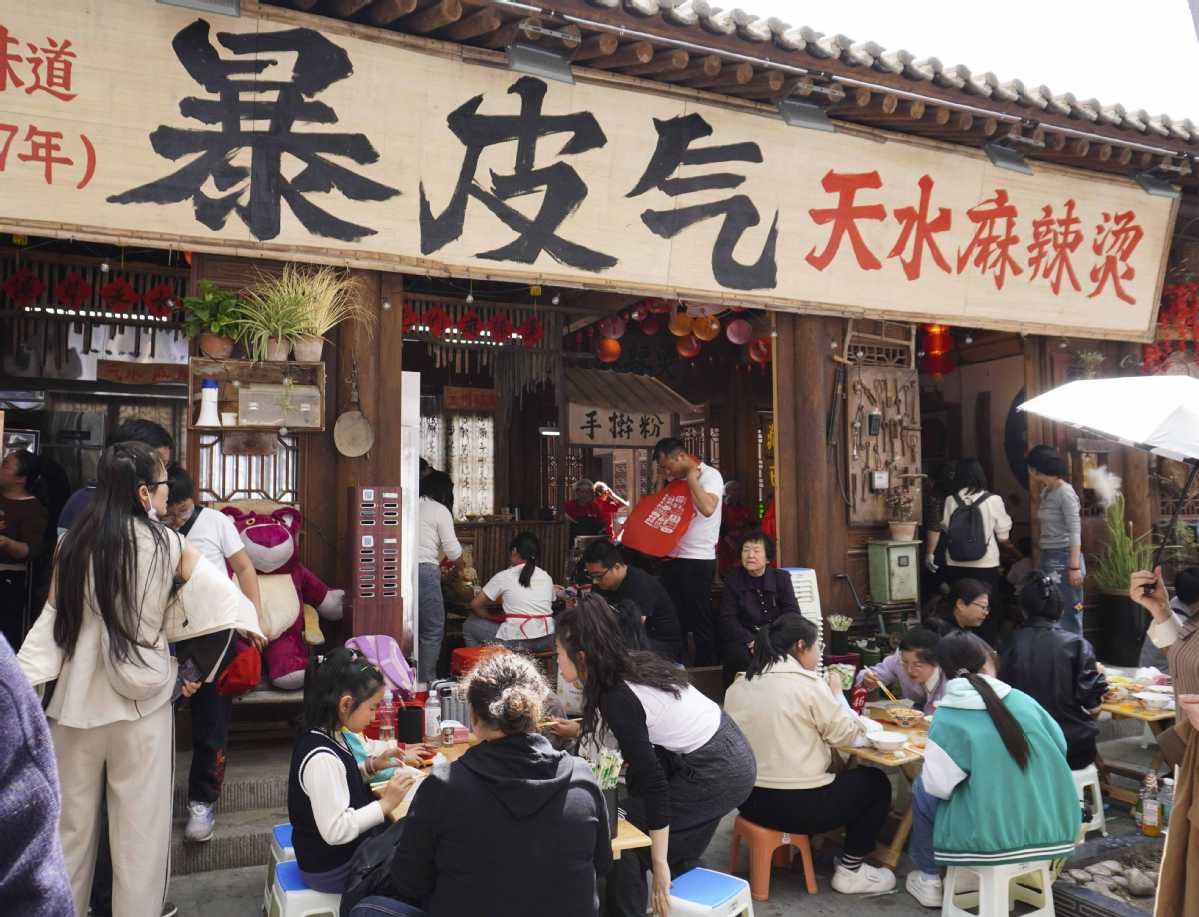Ensuring 'internet celebrity' cities sustain popularity

The rapid development of social media platforms in China has given rise to a new phenomenon: the "internet celebrity" cities. Cities such as Zibo in Shandong province; Harbin, capital of Heilongjiang province; and Tianshui in Gansu province have fast become national and even global sensations, because of the buzz their unique cultural offerings have created on social media. Be it because of Zibo's famed barbecue or Tianshui's local culinary experience, these cities have been attracting a large number of tourists. However, as the initial euphoria dies down, a critical question arises: can these "internet celebrity" cities sustain their popularity to ensure sustainable growth?
The rise of "internet celebrity" cities is indicative of deeper changes in cultural and tourism consumption in China.
First, it highlights a growing demand for authenticity. Most of these cities are not traditional tourism destinations. Take Zibo for example. Its economy is driven largely by the petrochemical industry; tourism does not play a major part in its economic structure. Yet, Zibo's unique "small pancake, barbecue grill, and dipping sauce" have made it something of a social media sensation, luring tourists from across the country.
Similarly, Harbin's winter attractions, such as ice sculptures and reindeer, help it stand out in the national tourism landscape.
These cities are attracting visitors because they offer something different. This shift in consumer behavior reveals an increasing demand for immersive, experiential tourism. People no longer seek just traditional tourist destinations, but also some authentic local and/or cultural practices they can participate in.
In Tianshui, for instance, tourists come to sample the local dishes such as chilli crunch and handmade noodles, and its famed spicy hot pot; which is so popular that one vendor's tired expression, overwhelmed by customer demand, has gone viral.
Equally famous are the local car fleets whose drivers lure potential women passengers by calling out, "Princess, please get in the car." Such interactions emphasize the growing trend of a form of tourism that blends everyday life with entertainment, creating new experiences that cannot be easily replicated in other cities.
The rise of "internet celebrity" cities is also triggering a fundamental shift in urban governance and destination management. When something about a city's culture goes viral, its administration must be ready to handle the ensuing popularity and cash in on it.
Zibo's viral barbecue success is a prime example. During the COVID-19 pandemic, when university students in Zibo began posting short videos online about the city's barbecue scene, the city quickly seized the opportunity, positioning Zibo as a friendly and welcoming place. Similarly, Harbin capitalized on its unique winter tourism by creating an inviting atmosphere — rolling out carpets on the streets, offering reindeer rides and serving frozen pears to visitors. The cities understood the value of branding.
However, the key to long-term success for these "internet celebrity" cities lies in their ability to develop a distinctive, "singular" identity. For that a city needs to be able to offer something unique — something that cannot be replicated elsewhere.
In the case of Zibo, for instance, its barbecue style, rooted in local culture and everyday life, is not something that other cities can easily imitate.
When these "quiet events" go viral, they evoke strong emotional connections and create shared values. Therefore, the secret to sustaining success lies in cultivating these unique elements from the very fabric of the city's culture — whether it is food, customs, or local rituals. The most successful "internet celebrity" cities are not those that are trying to copy the success of others, but those focusing on what makes them unique.
Moreover, the creation of a singular identity requires a long-term vision and strategic planning. It is not enough to simply ride the wave of a viral trend; cities must develop infrastructure, services and governance that can support sustained tourism. Successful "internet celebrity" cities are those that invest in improving public services, enhancing local amenities and ensuring that the needs of both residents and tourists are met.
In addition, there must be a shift in the role of local governments — from traditional managers to active service providers. As these cities become tourism hubs, they must evolve to accommodate and manage the large influx of visitors while maintaining a high quality of life for local residents.
Ultimately, the long-term success of "internet celebrity" cities hinges on how well they can preserve their uniqueness and adapt to the evolving demands of both residents and tourists. The "singularity" of these cities is what sets them apart. It is not about copying trends but about creating something unique and meaningful. In this regard, these cities should focus on building a sustainable tourism model — one that balances the excitement of viral trends with the stability of long-term growth. By doing so, they can continue to thrive, even after the initial euphoria fades, and become truly enduring "singular cities" that offer lasting value to both their residents and their visitors.
The key takeaway for urban planners, local governments, and tourism authorities is clear: viral fame is fleeting, true success lies in cultivating a city's distinctive character, creating meaningful experiences for tourists, and adapting governance to the needs of a growing and dynamic tourism market.
Only then can "internet celebrity" cities transform their moment in the spotlight into long-lasting prosperity.
